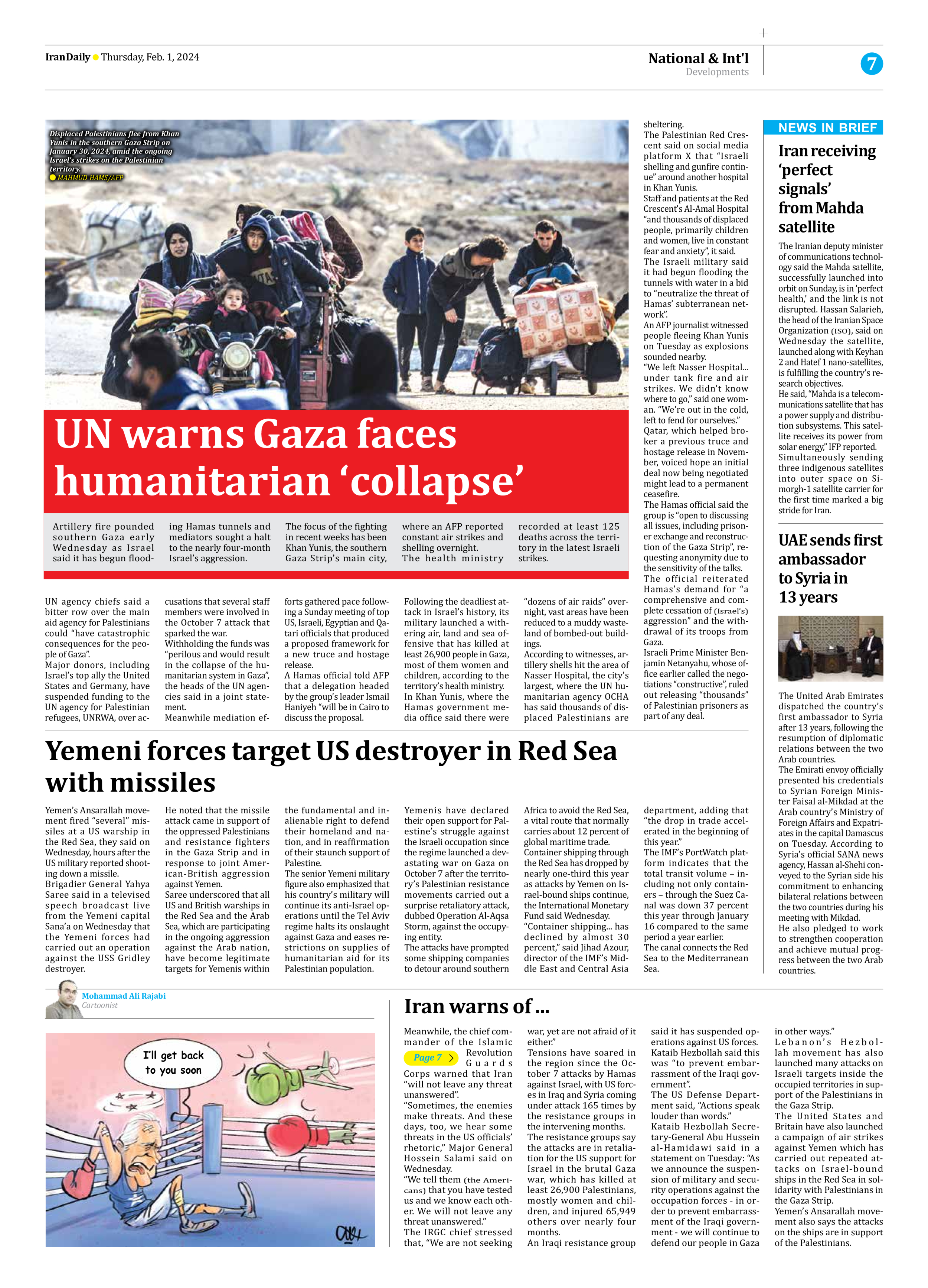
UN warns Gaza faces humanitarian ‘collapse’
Artillery fire pounded southern Gaza early Wednesday as Israel said it has begun flooding Hamas tunnels and mediators sought a halt to the nearly four-month Israel’s aggression.
The focus of the fighting in recent weeks has been Khan Yunis, the southern Gaza Strip’s main city, where an AFP reported constant air strikes and shelling overnight.
The health ministry recorded at least 125 deaths across the territory in the latest Israeli strikes.
UN agency chiefs said a bitter row over the main aid agency for Palestinians could “have catastrophic consequences for the people of Gaza”.
Major donors, including Israel’s top ally the United States and Germany, have suspended funding to the UN agency for Palestinian refugees, UNRWA, over accusations that several staff members were involved in the October 7 attack that sparked the war.
Withholding the funds was “perilous and would result in the collapse of the humanitarian system in Gaza”, the heads of the UN agencies said in a joint statement.
Meanwhile mediation efforts gathered pace following a Sunday meeting of top US, Israeli, Egyptian and Qatari officials that produced a proposed framework for a new truce and hostage release.
A Hamas official told AFP that a delegation headed by the group’s leader Ismail Haniyeh “will be in Cairo to discuss the proposal.
Following the deadliest attack in Israel’s history, its military launched a withering air, land and sea offensive that has killed at least 26,900 people in Gaza, most of them women and children, according to the territory’s health ministry.
In Khan Yunis, where the Hamas government media office said there were “dozens of air raids” overnight, vast areas have been reduced to a muddy wasteland of bombed-out buildings.
According to witnesses, artillery shells hit the area of Nasser Hospital, the city’s largest, where the UN humanitarian agency OCHA has said thousands of displaced Palestinians are sheltering.
The Palestinian Red Crescent said on social media platform X that “Israeli shelling and gunfire continue” around another hospital in Khan Yunis.
Staff and patients at the Red Crescent’s Al-Amal Hospital “and thousands of displaced people, primarily children and women, live in constant fear and anxiety”, it said.
The Israeli military said it had begun flooding the tunnels with water in a bid to “neutralize the threat of Hamas’ subterranean network”.
An AFP journalist witnessed people fleeing Khan Yunis on Tuesday as explosions sounded nearby.
“We left Nasser Hospital... under tank fire and air strikes. We didn’t know where to go,” said one woman. “We’re out in the cold, left to fend for ourselves.”
Qatar, which helped broker a previous truce and hostage release in November, voiced hope an initial deal now being negotiated might lead to a permanent ceasefire.
The Hamas official said the group is “open to discussing all issues, including prisoner exchange and reconstruction of the Gaza Strip”, requesting anonymity due to the sensitivity of the talks.
The official reiterated Hamas’s demand for “a comprehensive and complete cessation of (Israel’s) aggression” and the withdrawal of its troops from Gaza.
Israeli Prime Minister Benjamin Netanyahu, whose office earlier called the negotiations “constructive”, ruled out releasing “thousands” of Palestinian prisoners as part of any deal.







